Sikh Panthic Politics at Crossroads: Will Better Sense Prevail Today?
Shiromani Akali Dal Faces a Test of Leadership and Courage Amid Panthic Turmoil
Sikh Panth at Crossroads Following ‘Tankhah’ Decision
Barely 18 days after the momentous decision by the five Singh Sahiban at Sri Akal Takht Sahib, Amritsar, imposing tankhah (religious punishment) on prominent Sikh personalities, including Shiromani Akali Dal President Sukhbir Singh Badal, the Panth once again finds itself at a critical juncture. The decision, both in terms of its quantum and the manner in which the proceedings were conducted—resembling an open court within the sacred precincts of the Darbar Sahib complex—elicited widespread admiration from the broader Sikh Sangat. It also showcased the Akal Takht's unique role as a contemporary religious institution capable of addressing and penalizing religious misdemeanors with authority and transparency.
Reverence Meets Unforeseen Turmoil
While those penalized by the Akal Takht decision humbly bowed before its divine authority and willingly undertook their respective sentences, the sequence of events that followed diverged sharply from expectations.
The shocking attack on Sukhbir Singh Badal while he was performing seva at the threshold of the Golden Temple in Amritsar became an unexpected—and alarming—trigger. Although he escaped unhurt and no injuries to anyone were reported, the incident unleashed a storm of allegations directed at the Punjab Police. Accusations ranged from gross negligence to outright complicity, spearheaded by Shiromani Akali Dal General Secretary Bikram Singh Majithia.
Majithia, a brother-in-law of Sukhbir Badal, presented SGPC CCTV footage covering the day of the attack and the day prior, suggesting a sinister conspiracy theory. He alleged that senior police officers, ostensibly assigned to safeguard Sukhbir Badal’s life, were instead engaged in questionable interactions with the assailant , fueling suspicions about a deeper plot.
Controversy Deepens Amid Police Probe and Radical Comments
The situation took a controversial turn when the Commissioner of Police, Amritsar, made a brief statement to the press, suggesting that their investigation would consider all possible angles—including whether the attack was stage-managed to garner sympathy. This comment only added fuel to the already raging fire of speculation and debate.
To complicate matters further, stray remarks from splinter radical organizations lauding the assailant as a hero inflamed emotions and polarized opinions within the Sikh community. Amid the growing controversy, the Punjab Police maintained professionalism by invoking due process and diligently proceeding with their investigation. However, they exercised caution by refraining from making any further official statements about the progress of the probe, a move that underscored their prudence in navigating a politically and emotionally charged situation.
Extension Granted, But New Controversies Shake Panthic Politics
As per media reports, an 18-day extension to implement the verdict of the five Singh Sahiban was granted by the Jathedar of Sri Akal Takht, Giani Raghbir Singh, without reconvening the collective assembly of the Singh Sahiban, who had originally imposed a three-day deadline for the resignations. While there were muted voices of dissent regarding this procedural deviation, the decision was broadly accepted by the wider Sikh Sangat, including by Giani Harpreet Singh.
However, Panthic politics faced a fresh upheaval when an audio recording of a conversation between SGPC President Advocate Harjinder Singh Dhami and a journalist surfaced. In the recording, Dhami was heard making derogatory remarks against former SGPC President Bibi Jagir Kaur. These statements drew widespread condemnation, not only for targeting Bibi Jagir Kaur personally but also for their perceived insult to women as a whole.
The Punjab State Women’s Commission took suo moto notice of the comments, adding to the controversy. Earlier, Advocate Dhami had issued an unconditional apology—not only to Bibi Jagir Kaur personally but also to all women, acknowledging the undesirability of his remarks and admitting his mistake. He claimed to have submitted a written apology to the Jathedar of Akal Takht as well.
While the Sikh community awaits further action or decisions from the Akal Takht on this matter, the revelation has significantly undermined the moral authority of the SGPC President. The incident has triggered widespread calls for Advocate Dhami’s resignation—not just as SGPC President but also from the seven-member interim committee constituted by the Singh Sahiban to oversee Akali Dal’s affairs for six months until a new Party President is elected in accordance with the party's constitution.
Trolling Campaign Targets Giani Harpreet Singh Amid Rising Tensions
Barely had the dust settled on the SGPC President controversy when a professionally orchestrated trolling campaign was unleashed against Giani Harpreet Singh, the Jathedar of Takht Sri Damdama Sahib. Widely regarded by those close to Sukhbir Singh Badal as one of the sharpest critics among the five Singh Sahiban, Giani Harpreet Singh became the target of wild allegations. These accusations, dating back over a decade, ranged from claims of moral turpitude to financial impropriety.
In an unprecedented move, Giani Harpreet Singh took the extraordinary step of denying these allegations in the sacred presence of Sri Guru Granth Sahib, underscoring the gravity of the situation. Following this, he held a press conference where, without naming anyone explicitly, he indirectly pointed the finger at former MLA Virsa Singh Valtoha.
Valtoha, who had been expelled from the Shiromani Akali Dal for ten years, had previously launched a scathing attack on Giani Harpreet Singh just a couple of months earlier. He accused the Jathedar of being influenced by the central government and the RSS, marking a significant escalation in the already fraught dynamics within Panthic politics.
Giani Harpreet Singh Refuses to Resign, Faces Suspension
Giani Harpreet Singh firmly declared that he would not resign from his position as Jathedar of Takht Sri Damdama Sahib, asserting that the allegations against him were baseless. He further stated that he had no objection if the SGPC chose to remove him from his post. In a resolute stance, he categorically announced that he would not participate in any meeting of the five Singh Sahiban reconvened to review or amend the decisions taken during the December 2 meeting.
The following day, on December 19, an emergent meeting of the SGPC Executive Committee was convened at Gurdwara Katana Sahib, near Neelon Bridge in Ludhiana district. During this meeting, Giani Harpreet Singh was suspended from his position for 15 days. The SGPC tasked an inquiry committee to investigate the allegations against him and submit a report within this period.
In the interim, the additional charge of Jathedar of Takht Sri Damdama Sahib was handed over to the Head Granthi of Sri Darbar Sahib, Amritsar. Ironically, the meeting was presided over by SGPC President Advocate Harjinder Singh Dhami, whose own credibility remains in question due to his widely condemned remarks against women. This development has further deepened the crisis in Sikh Panthic politics, raising questions about the SGPC’s leadership and moral authority.
Narrative of Deregistration Sparks Debate
Amid the unfolding controversies, a narrative began to gain traction in the national press, vernacular media, and on social media suggesting that the Shiromani Akali Dal (SAD)—a recognized and registered political party with the Election Commission of India—might risk deregistration if it implemented the directives of Sri Akal Takht. The argument put forth was that all political parties are required to maintain secular credentials, and adherence to directives from a religious authority could be seen as violating the provisions of law, including the Election Commission’s symbol allotment order.
This argument was promptly rebutted by us on several grounds. It was emphasized that the directives of Sri Akal Takht were issued to individuals as practicing Sikhs, irrespective of their positions in government or political parties. Their compliance was rooted in religious obligations rather than political mandates. Furthermore, it was pointed out that Hindu members of the Parkash Singh Badal Cabinet, who in theory shared collective responsibility for the decisions in question, had not been summoned, underscoring the fact that the directives were not targeting political affiliations but specific individuals' religious accountability, as a Sikh.
The narrative, while creating ripples in public discourse, failed to gain significant traction among Sikh scholars and legal experts, including Kiranjot Kaur, a sitting member of the SGPC and granddaughter of Master Tara Singh, the doyen of Akali politics. She viewed it as an attempt to undermine the gravity and autonomy of the Akal Takht's authority in Sikh religious life, encompassing both spiritual and temporal domains. Gurjeet Singh Talwandi, General Secretary of the Shiromani Akali Dal, had earlier issued a well-articulated press note addressing the matter from a legal perspective. However, it remained unclear whether he did so in his personal capacity or as an official representative of the SAD.
End of Extension and Uncertain Paths Ahead
The 18-day extension for the implementation of the directives issued by the five Singh Sahiban expires today, December 20, 2024. Not coincidentally, this date also marks the end of Sukhbir Singh Badal’s five-year regular term as the elected President of Shiromani Akali Dal. By the end of the day, Sukhbir Badal effectively ceases to hold this position by mere efflux of time. This development could render the directive for his resignation, as issued by the five Singh Sahiban, moot and legally infructuous.
However, the broader decisions of the Singh Sahiban—including the constitution of the seven-member interim committee to manage Akali Dal’s affairs for six months—still stand and remain enforceable. The question arises whether a fresh meeting of the five Singh Sahiban, with Giani Harpreet Singh substituted by the Head Granthi of Sri Darbar Sahib due to his suspension, will be convened today to review or modify these decisions.
Simultaneously, attention turns to the Shiromani Akali Dal’s Core Committee, whose legal and moral authority has been called into question, as no office bearer can continue to hold the office after the expiry of the 5-year term. It remains to be seen whether this committee will meet—either with or without Sukhbir Badal in the chair—and if so, how it will navigate the evolving political and religious landscape. The day holds the potential to redefine the trajectory of Sikh Panthic politics, hinging on decisions that could reverberate far beyond immediate implications.
The Road Ahead: Unity and Renewal for Sikh Panthic Politics
As the day progresses, clarity will emerge regarding the decisions of the five Singh Sahiban and the core committee of Shiromani Akali Dal (SAD). With the SGPC's role in this matter practically concluded, the responsibility now rests with these two bodies. The need of the hour is for unity among all concerned stakeholders, who must rise above petty egos and come together for the larger cause of the Sikh Panth.
The Need for Statesmanship Amid Panthic Crisis
Even political parties traditionally opposed to the Shiromani Akali Dal (SAD) have acknowledged that a strong and healthy SAD, as a bona fide regional party representing Punjab’s interests, is essential for a balanced political discourse in this border state. The recent chaotic sequence of events, while disruptive, also offers a rare opportunity for introspection and reform. This moment calls for true statesmanship from leaders like Sukhbir Singh Badal and Bikram Singh Majithia. If they can bridge divides among various factions—even at the cost of relinquishing their political offices—they could restore stability and credibility to the party. Whether such sacrifices will be made, however, remains uncertain.
This critical juncture also offers an opportunity for other mainstream SAD leaders to step forward, make their voices heard, and, more importantly, listen to their own conscience. Giani Harpreet Singh, while clear in his own statements, would be well-advised to avoid making any personal or political remarks during the sacred observance of the Shaheedi Pandhrawada. This period, commemorating the unparalleled martyrdom of the Four Sahibzadas of Sri Guru Gobind Singh Ji and Mata Gujri Ji, is a time for solemn reflection. Instead, Giani Harpreet Singh could focus on visiting key historical Gurdwaras dedicated to these events, as well as Sachkhand Hazur Sahib in Nanded, on the occasion of the Tenth Guru's birth anniversary in January, emphasizing spiritual and historical connections over political discourse.
Meanwhile, attention also shifts to the overdue general elections of the SGPC, last held in 2011. New voter registrations have already been filed, and their verification should not take more than a month. With no other major elections on the horizon, there is no compelling reason why these elections cannot be conducted by February or March. Delaying the process any further risks undermining the legitimacy of the SGPC’s President and Executive Committee, especially since many Sikh youths, now over 21 years of age, are eligible to vote but remained unregistered in the 2011 elections.
Holding these elections could act as a mini-referendum, particularly if unity remains elusive, to determine which faction of the Akali Dal commands the trust and support of the Sikh community. Concerns about radicals potentially seizing control of the SGPC appear unfounded, as no such elements emerged during the recent gram panchayat elections held in over 14,000 villages across Punjab. Timely SGPC elections would not only reaffirm the democratic ethos of the Sikh community but also offer a crucial pathway for resolving the ongoing crisis and restoring faith in Sikh Panthic politics.
A Defining Moment for the Sikh Panth
The Sikh Panth in general, and the Shiromani Akali Dal (SAD) and SGPC in particular, stand at a critical crossroads today, December 20, 2024. Bold and courageous decisions by all stakeholders, especially its leaders, are imperative to steer the community back onto a path of unity and progress. Any further drift or indecision risks exacerbating the current crisis, potentially leading to disillusionment among the younger generation.
These young voices, now more assertive and impatient, may feel unjustly excluded from their democratic right to elect representatives to what is often described as the "mini Parliament of the Sikhs." This sense of alienation could deepen divisions and weaken the Panth’s collective strength.
Let us hope that wisdom and foresight prevail today, enabling the Sikh leadership to make decisions that honour the Panth’s democratic traditions and pave the way for a brighter, more united future.
"I Will Not Resign – SGPC Is Free to Sack Me": Giani Harpreet Singh
I Will Not Resign – SGPC Is Free to Sack Me: Giani Harpreet Singh
A Misinterpretation of the Akal Takht’s Religious Authority vis-à-vis the Shiromani Akali Dal
A Misinterpretation of Religious Authority of Akal Takht: A Response to Yogendra Yadav
Bikram Majithia Emerges as a Potent Leader in Akali Politics Amid Crisis
Bikram Singh Majithia Emerges as a Potent Leader

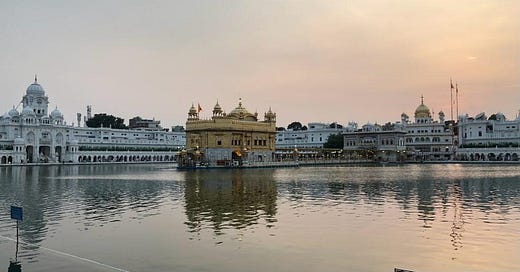



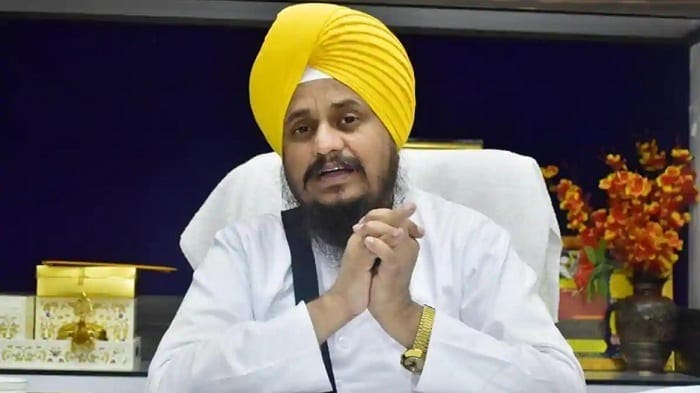
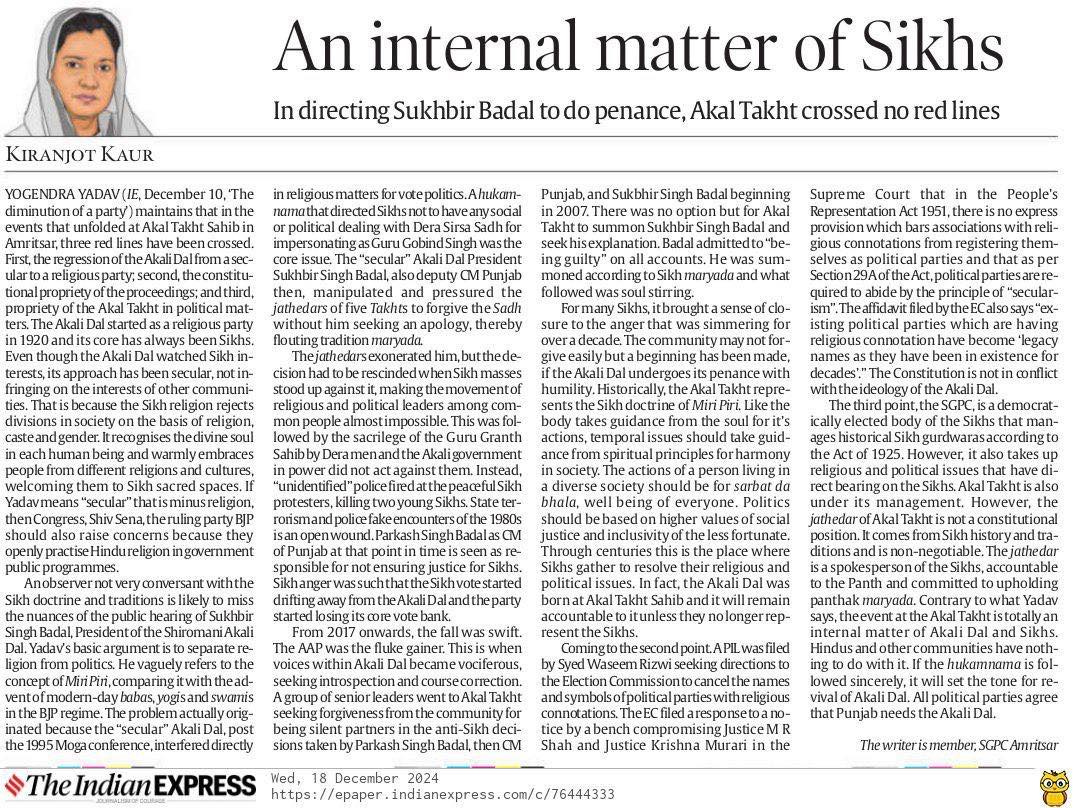
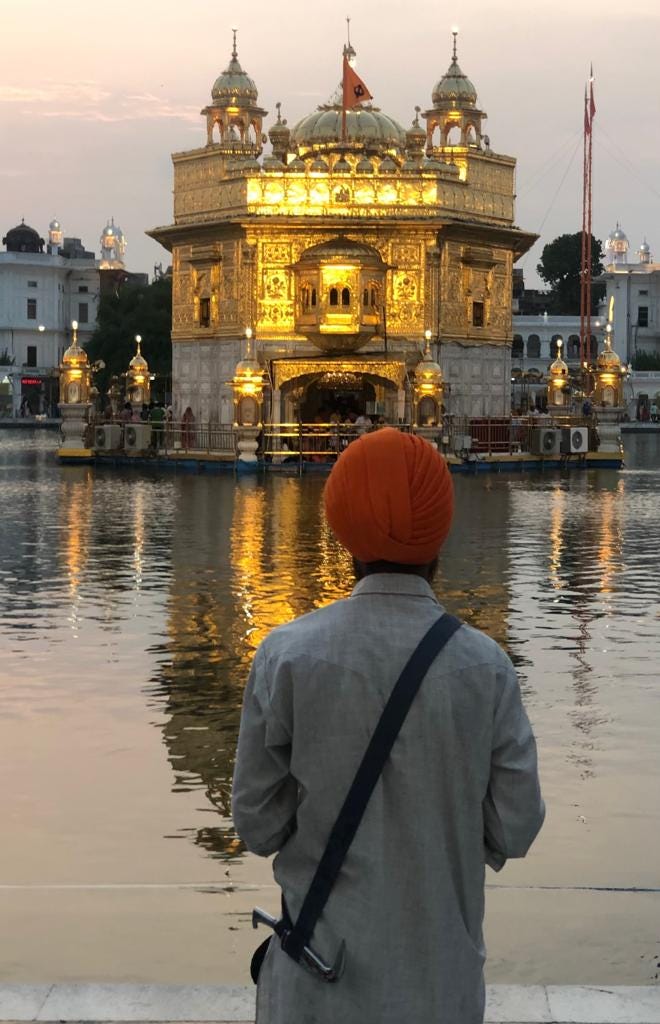


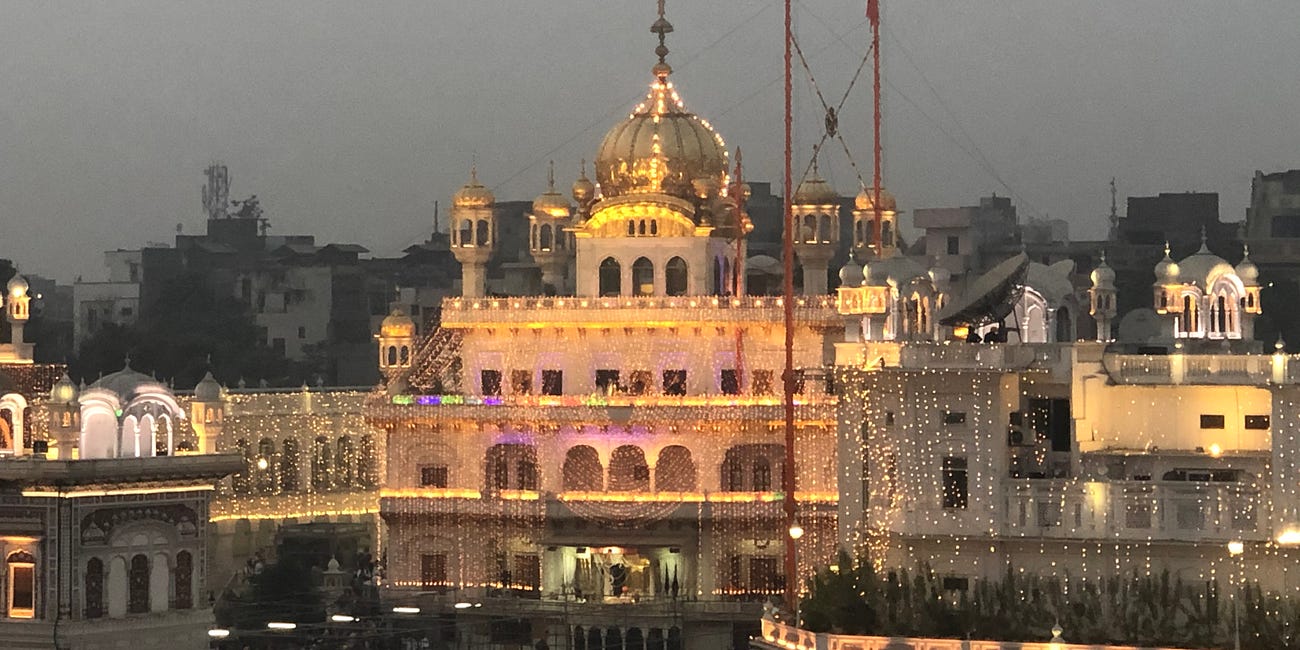
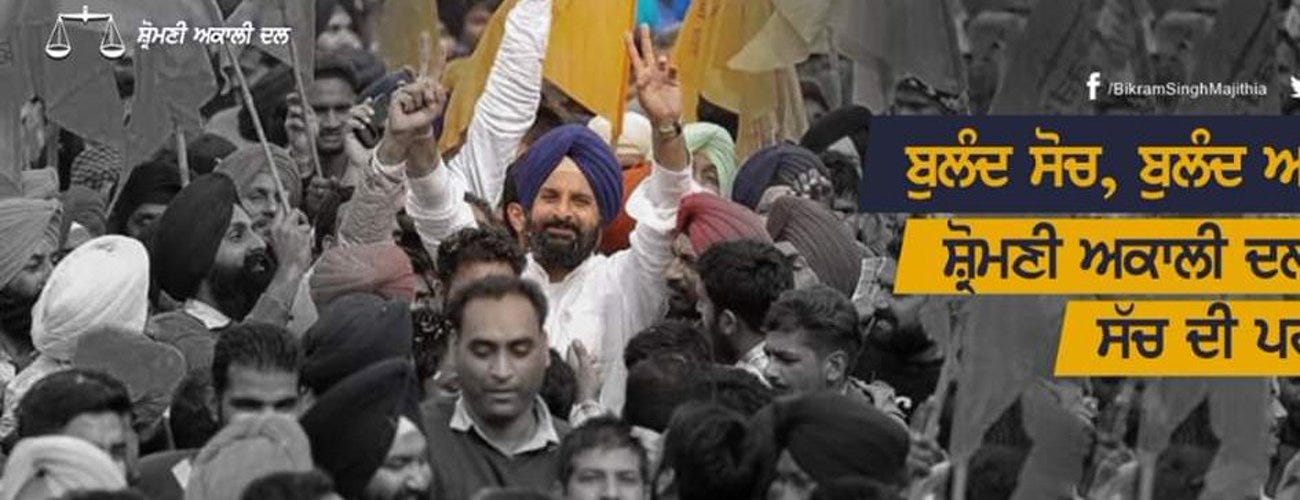
ਵਾਪਰ ਰਹੀਆਂ ਘਟਨਾਵਾਂ ਸਿਰਫ ਇੱਕ ਪ੍ਰੀਵਾਰ ਦੇ ਸੱਤਾ ਤੇ ਕਾਬਜ਼ ਰਹਿਣ ਦੀ ਲਾਲਸਾ ਨੂੰ ਲੈ ਕੇ ਉਸ ਪ੍ਰੀਵਾਰ ਅਤੇ ਉਸ ਦੇ ਚਮਚਾਗਿਰਾਂ ਦੁਆਰਾ ਆਪਣੇ ਹੱਥੀਂ ਲਿਖੀਆਂ ਜਾ ਰਹੀਆਂ ਸਕ੍ਰਿਪਟ ਹਨ। ਸਿੱਖ ਪੰਥ ਜਾਂ ਧਰਮ ਨੂੰ ਕੁਝ ਨਹੀਂ ਹੋਣ ਵਾਲਾ। ਇਹਨਾਂ ਦੀਆਂ ਕਰਤੂਤਾਂ ਨਾਲ ਬਹੁਤ ਚੰਗੇ ਲੋਕਾਂ ਦੀਆਂ ਭਾਵਨਾਵਾਂ ਆਹਿਤ ਜ਼ਰੂਰ ਹੋਈਆਂ ਹਨ ਅਤੇ ਉਨਾਂ ਨੂੰ ਦਾਗੀ ਕਰਨ ਦੀ ਵੀ ਕੋਸ਼ਿਸ਼ ਕੀਤੀ ਜਾ ਰਹੀ ਹੈ। ਮੇਰੇ ਅਨੁਸਾਰ ਇਹ ਸਾਰਾ ਵਰਤਾਰਾ ਅਕਾਲੀ ਰਾਜਨੀਤੀ ਨੂੰ ਨਵਾਂ ਜੀਵਨ ਦੇਣ ਵਾਲੇ ਪਾਸੇ ਵਧ ਰਿਹਾ ਹੈ। ਸਿੱਖ ਕੌਮ ਵਿੱਚ ਜਦੋਂ ਜਦੋਂ ਵੀ ਅਜਿਹੇ ਹਲਾਤਾਂ ਕਾਰਨ ਤਸਵੀਰ ਧੁੰਦਲੀ ਹੋਈ ਹੈ ਨਿਖਾਰ ਆ ਕੇ ਅਸਲੀਅਤ ਵੀ ਸਾਹਮਣੇ ਆਉਂਦੀ ਰਹੀ ਹੈ।
ਗਰਦ ਬਹੁਤ ਪੈ ਚੁੱਕੀ ਸੀ ਹੁਣ ਬਰਸਾਤ ਹੋ ਰਹੀ ਹੈ ਅਤੇ ਜਲਦੀ ਹੀ ਸਾਫ ਮੌਸਮ ਦਿਖਾਈ ਦੇਵੇਗਾ।
ਧੰਨਵਾਦ ਸਹਿਤ ਨਿਸ਼ਾਨ ਸਿੰਘ ਕਾਹਲੋਂ